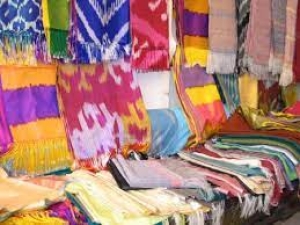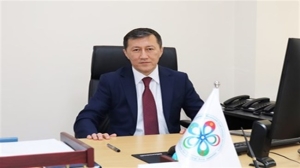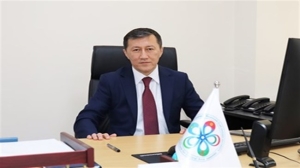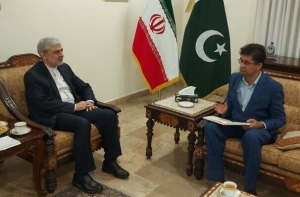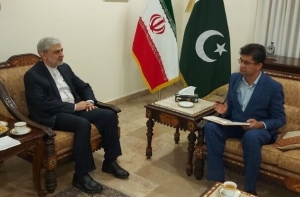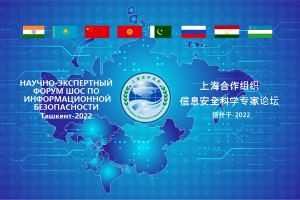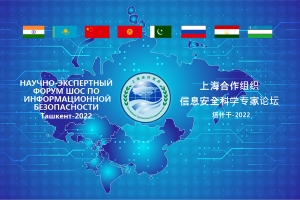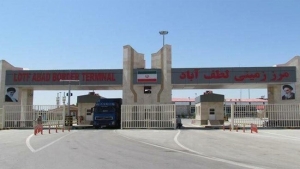Member Countries
ecocci
TASHKENT TEXTILE SUMMIT WITHIN THE FRAMEWORK OF THE TASHKENT TEXTILE WEEK OCTOBER 11-12, 2022 TASHKENT
Uzbekistan and SCO
Active and pragmatic foreign policy, pursued under the leadership of the President of the Republic of Uzbekistan Shavkat Mirziyoyev, strengthens the role and authority of the country not only in the region, but also on a global scale, and increases its influence on the international process.
Multilateral collaboration with international and regional organizations, in particular, Uzbekistan’s participation in the activities of the Shanghai Cooperation Organization, is of particular importance.
The transfer of the chairmanship of the Organization to Uzbekistan for 2021-2022 has become a logical continuation of our active and open foreign policy, implemented over the past 6 years.
At Dushanbe SCO Summit 2021, President Shavkat Mirziyoyev outlined the most priority areas of chairmanship in the Organization, such as intensifying joint efforts to ensure peace and stability in the SCO space, deepening trade, economic and investment cooperation, expanding transport and communication ties, interaction on poverty reduction, ensuring food security, wide use of the existing potential in healthcare, cultural and humanitarian spheres, and in the fight against climate change.
Over 80 events were held in all areas of cooperation during Uzbekistan’s chairmanship in the SCO.
As a result of large-scale events held at the upcoming summit, it is planned to submit more than 30 documents for signing.
Undoubtedly, one of the main goals of the Samarkand Summit is the issue of further expansion of the SCO family. Within the framework of the Council of Heads of State, a Memorandum is expected to be signed on the Commitment of the Islamic Republic of Iran to obtain the status of an SCO member.
This will become an important step in the implementation of the decision taken last year to start the process of admitting Iran to full membership.
In addition, a decision will be made to expand the membership of observer countries and partners in the SCO dialogue.
Documents on establishing cooperation between the SCO and several international and regional organizations are expected to be signed at the summit.
Another important document that is being prepared for adoption is the Comprehensive Plan for the Implementation of the SCO Treaty on Long-Term Good-Neighborliness, Friendship and Cooperation for 2023-2027.
This strategically important document was developed on the initiative of the President of the Republic of Uzbekistan Shavkat Mirziyoyev and received the support of all SCO member states.
The draft plan includes cooperation in all areas within the Organization, currently, it contains about 120 events. The main attention is paid to the development of trade and economic relations. Thus, specific measures were defined to further strengthen industrial cooperation, partnership in investment, energy, transport, information and telecommunications, agriculture, customs and other spheres, logistics, as well as the agencies responsible for their implementation.
This Treaty can be compared in importance to the SCO Charter. If the Charter is the “soul” of the Organization, its “compass”, then the Treaty is the “conscience” of the SCO. Each member state is responsible for contributing to its implementation.
This document is aimed at ensuring the correct, rhythmic and stable functioning of the “compass” that enables the Organization to stay on the chosen path.
The Charter and the Treaty are the foundation for the political and legal relations of the SCO, determining its philosophy and image for the long term, for the entire period of the existence of the Organization.
The main features of the Treaty are that each provision of the document meets the national interests of all member states, as well as the goals of long-term joint development on the vast expanse of the SCO.
Therefore, the Comprehensive Plan submitted for signing and the specific measures indicated in it will serve the interests of all SCO member states without exception, including Uzbekistan.
SCO – major regional organization in the world
The total area of the SCO member states is 34 million km², which is 60% of the Eurasian continent. The population of the member states is nearly 3 billion people or about half of the world’s population. The SCO countries account for 20% of the global economy.
By accepting Iran as a full member, the SCO opens the door to the Middle East, which is considered a strategically important region.
It is obvious to everyone that the key to the Organization’s success is multifaceted cooperation and openness. Therefore, the structure appears as a convenient platform for an open dialogue, and a broad interregional partnership.
Uzbekistan – one of the founders of the Shanghai Cooperation Organization
Uzbekistan is always recognized as one of the leaders in determining the further strategy for the development of mutually beneficial cooperation within the framework of the SCO.
We consider the SCO as an instrument in the fight against terrorism, extremism, separatism, transnational organized crime, drug trafficking, as well as an Organization that promotes the development of multifaceted cooperation in trade, economic, transport, cultural and humanitarian spheres.
Our country has chaired the Organization three times before. At the initiative of Uzbekistan in 2004, the Regional Anti-Terrorist Structure of the SCO was established in Tashkent. The format of meetings of security council secretaries was introduced. A mechanism for granting observer status in the SCO was launched.
At the meeting of the Council of Heads of Member States, held in Tashkent in 2010, the Organization's rules of procedure and the Regulations on the procedure for admitting new members were adopted.
One of the main results of the Tashkent Summit of the Shanghai Cooperation Organization in 2016 was the signing of memorandums of commitment between India and Pakistan to obtain the status of the SCO member state. This served to strengthen the Organization’s potential and further enhance its role in the international arena.
Since 2017, our country has become the leading initiator of further developing cooperation within the SCO.
For five years, the President of Uzbekistan has put forward 54 initiatives at the SCO summits to improve the effectiveness of cooperation in political, trade, economic, transport and logistics, innovation and other spheres. 37 of them have been implemented, 17 more are under implementation.
At the Dushanbe Summit, several initiatives put forward by the Uzbek side were adopted – the SCO Green Belt Program, the SCO Interaction Plan on Ensuring International Information Security, the Concept of the SCO Economic Forum, as well as the Regulations on the Tourism and Cultural Capital of the SCO.
As the analysis shows, in terms of ongoing initiatives, Uzbekistan takes a leading position in the SCO. If in past years the Uzbek side was mainly active in security, now it focuses on the need for building up the overall potential through such areas as the economy, transport and logistics, innovative and digital development, cultural and public diplomacy.
The strategy being implemented in the SCO space at the initiative of Uzbekistan’s President is based on such important principles as constructiveness, pragmatism and initiative.
The superiority of Uzbekistan’s foreign policy is expressed in the fact that the initiatives put forward by Tashkent within the framework of the SCO, in particular those aimed at sustainable development of the region, fully meet the national interests of the member countries. Therefore, these initiatives are widely supported by all SCO member states.
Activities carried out under the chairmanship of Uzbekistan on the eve of the summit in Samarkand enriched the activities of the Organization with concrete and effective, new and important projects. We can say that Uzbekistan has withstood another difficult political test with honor.
The results of Uzbekistan’s chairmanship in the SCO will be summed up at the summit, which will be held on September 15-16 in Samarkand.
We are confident that it will become a major political and diplomatic forum and will go down in history as an important step toward the further development of the Organization.
Uzbekistan and SCO
Active and pragmatic foreign policy, pursued under the leadership of the President of the Republic of Uzbekistan Shavkat Mirziyoyev, strengthens the role and authority of the country not only in the region, but also on a global scale, and increases its influence on the international process.
Multilateral collaboration with international and regional organizations, in particular, Uzbekistan’s participation in the activities of the Shanghai Cooperation Organization, is of particular importance.
The transfer of the chairmanship of the Organization to Uzbekistan for 2021-2022 has become a logical continuation of our active and open foreign policy, implemented over the past 6 years.
At Dushanbe SCO Summit 2021, President Shavkat Mirziyoyev outlined the most priority areas of chairmanship in the Organization, such as intensifying joint efforts to ensure peace and stability in the SCO space, deepening trade, economic and investment cooperation, expanding transport and communication ties, interaction on poverty reduction, ensuring food security, wide use of the existing potential in healthcare, cultural and humanitarian spheres, and in the fight against climate change.
Over 80 events were held in all areas of cooperation during Uzbekistan’s chairmanship in the SCO.
As a result of large-scale events held at the upcoming summit, it is planned to submit more than 30 documents for signing.
Undoubtedly, one of the main goals of the Samarkand Summit is the issue of further expansion of the SCO family. Within the framework of the Council of Heads of State, a Memorandum is expected to be signed on the Commitment of the Islamic Republic of Iran to obtain the status of an SCO member.
This will become an important step in the implementation of the decision taken last year to start the process of admitting Iran to full membership.
In addition, a decision will be made to expand the membership of observer countries and partners in the SCO dialogue.
Documents on establishing cooperation between the SCO and several international and regional organizations are expected to be signed at the summit.
Another important document that is being prepared for adoption is the Comprehensive Plan for the Implementation of the SCO Treaty on Long-Term Good-Neighborliness, Friendship and Cooperation for 2023-2027.
This strategically important document was developed on the initiative of the President of the Republic of Uzbekistan Shavkat Mirziyoyev and received the support of all SCO member states.
The draft plan includes cooperation in all areas within the Organization, currently, it contains about 120 events. The main attention is paid to the development of trade and economic relations. Thus, specific measures were defined to further strengthen industrial cooperation, partnership in investment, energy, transport, information and telecommunications, agriculture, customs and other spheres, logistics, as well as the agencies responsible for their implementation.
This Treaty can be compared in importance to the SCO Charter. If the Charter is the “soul” of the Organization, its “compass”, then the Treaty is the “conscience” of the SCO. Each member state is responsible for contributing to its implementation.
This document is aimed at ensuring the correct, rhythmic and stable functioning of the “compass” that enables the Organization to stay on the chosen path.
The Charter and the Treaty are the foundation for the political and legal relations of the SCO, determining its philosophy and image for the long term, for the entire period of the existence of the Organization.
The main features of the Treaty are that each provision of the document meets the national interests of all member states, as well as the goals of long-term joint development on the vast expanse of the SCO.
Therefore, the Comprehensive Plan submitted for signing and the specific measures indicated in it will serve the interests of all SCO member states without exception, including Uzbekistan.
SCO – major regional organization in the world
The total area of the SCO member states is 34 million km², which is 60% of the Eurasian continent. The population of the member states is nearly 3 billion people or about half of the world’s population. The SCO countries account for 20% of the global economy.
By accepting Iran as a full member, the SCO opens the door to the Middle East, which is considered a strategically important region.
It is obvious to everyone that the key to the Organization’s success is multifaceted cooperation and openness. Therefore, the structure appears as a convenient platform for an open dialogue, and a broad interregional partnership.
Uzbekistan – one of the founders of the Shanghai Cooperation Organization
Uzbekistan is always recognized as one of the leaders in determining the further strategy for the development of mutually beneficial cooperation within the framework of the SCO.
We consider the SCO as an instrument in the fight against terrorism, extremism, separatism, transnational organized crime, drug trafficking, as well as an Organization that promotes the development of multifaceted cooperation in trade, economic, transport, cultural and humanitarian spheres.
Our country has chaired the Organization three times before. At the initiative of Uzbekistan in 2004, the Regional Anti-Terrorist Structure of the SCO was established in Tashkent. The format of meetings of security council secretaries was introduced. A mechanism for granting observer status in the SCO was launched.
At the meeting of the Council of Heads of Member States, held in Tashkent in 2010, the Organization's rules of procedure and the Regulations on the procedure for admitting new members were adopted.
One of the main results of the Tashkent Summit of the Shanghai Cooperation Organization in 2016 was the signing of memorandums of commitment between India and Pakistan to obtain the status of the SCO member state. This served to strengthen the Organization’s potential and further enhance its role in the international arena.
Since 2017, our country has become the leading initiator of further developing cooperation within the SCO.
For five years, the President of Uzbekistan has put forward 54 initiatives at the SCO summits to improve the effectiveness of cooperation in political, trade, economic, transport and logistics, innovation and other spheres. 37 of them have been implemented, 17 more are under implementation.
At the Dushanbe Summit, several initiatives put forward by the Uzbek side were adopted – the SCO Green Belt Program, the SCO Interaction Plan on Ensuring International Information Security, the Concept of the SCO Economic Forum, as well as the Regulations on the Tourism and Cultural Capital of the SCO.
As the analysis shows, in terms of ongoing initiatives, Uzbekistan takes a leading position in the SCO. If in past years the Uzbek side was mainly active in security, now it focuses on the need for building up the overall potential through such areas as the economy, transport and logistics, innovative and digital development, cultural and public diplomacy.
The strategy being implemented in the SCO space at the initiative of Uzbekistan’s President is based on such important principles as constructiveness, pragmatism and initiative.
The superiority of Uzbekistan’s foreign policy is expressed in the fact that the initiatives put forward by Tashkent within the framework of the SCO, in particular those aimed at sustainable development of the region, fully meet the national interests of the member countries. Therefore, these initiatives are widely supported by all SCO member states.
Activities carried out under the chairmanship of Uzbekistan on the eve of the summit in Samarkand enriched the activities of the Organization with concrete and effective, new and important projects. We can say that Uzbekistan has withstood another difficult political test with honor.
The results of Uzbekistan’s chairmanship in the SCO will be summed up at the summit, which will be held on September 15-16 in Samarkand.
We are confident that it will become a major political and diplomatic forum and will go down in history as an important step toward the further development of the Organization.
Iran offers completion of gas pipeline project with Pakistan: APP
TEHRAN - Iranian Ambassador Mohammad Ali Hosseini has offered his government’s support to complete Iran-Pakistan (IP) Gas Pipeline project and hinted to extend cooperation in other fields of mutual interest.
In an interview with the Associated Press of Pakistan (APP), Hosseini said Iran welcomes strengthen of mutual trade cooperation with Pakistan, adding that the country is willing for the completion of energy projects, especially the IP gas pipeline.
The official also expressed the Islamic Republic’s support for the establishment of border markets; finalization of a free trade agreement, and collaboration on major ports and security areas, APP reported.
He added that there were no sanctions on the export of gas from Iran, and Pakistan could take full benefit of it to fulfill its energy needs. The IP gas pipeline is a key project in that regard and both countries realize its importance.
The gas pipeline project is being deliberated by a technical committee, he said, adding its completion would also open new avenues for mutual cooperation between the two countries.
The ambassador said Iran was already exporting 100 megawatts of electricity to Pakistan for meeting the power needs (of its bordering areas) and the figure could be increased in the future.
He added that work was also going on another project to provide electricity to Pakistan. Both countries have taken initial steps in that regard.
Ambassador Hosseini identified opportunities for investors of both countries in various trade sectors, particularly the industrial zones.
Highlighting the role of the two countries in regional economic and trade integration, he said that North-South and East-West corridors would not only connect Pakistan to Iran but also help the former’s trade and economic integration with Central Asia, Europe, West Asia, and Russia.
He noted that the two countries were making joint efforts to achieve the target of enhancing their mutual trade to $5 billion.
Both Pakistan and Iran are geographically very important countries and their mutual cooperation is of utmost importance to make it useful for their geo-economic interests, he further noted.
The ambassador said the two countries could find ways for mutual economic partnership and trade. There is the possibility of opening a banking channel in the near future, he added.
He said barter trade between the two countries could be promoted as “we have the example of mutual trade in rice and meat”.
Regarding the measures taken on the Pakistan-Iran border, he said new crossing points had been opened. The two countries are committed to providing more facilities at the crossing points to not only facilitate the movement of people but also transit trade.
He said it was decided in principle to set up six border markets in order to promote mutual trade relations.
The Pishin border market has been completed and its inauguration is on the agenda, the official said, adding that the work on Gabd, Rimdan, and Kohak markets would start soon.
About the Free Trade Agreement (FTA), the ambassador said several rounds of negotiations have taken place between the two countries. Mutual trade lists have been exchanged, with consensus developed on trade items, he added.
He recalled that the two countries signed a Preferential Trade Agreement in March 2004, which, he said, required to be reviewed and made more effective.
The envoy stressed the need for tariff rationalization and other reforms to enhance the volume of mutual trade to $5 billion.
with regard to the two countries’ role in the promotion of regional trade, the ambassador said the Pakistan-Iran-Turkey train link has been restored, which would not only promote economic and trade relations among the three countries but also increase regional economic and trade integration.
The three governments have agreed to equip the train route with facilities, which would promote mutual trade and goods trade operation, he added.
He said the Taftan-Quetta train section needed to be repaired, and Iran and Pakistan have reached a consensus to do that.
He said the train route among Pakistan, Iran, and Turkey could play a very important role in regional trade integration as it could connect Central Asia, West Asia, and Europe economically and commercially.
He said Iranians had expertise in train and wagon production, and transportation, which is very important for transit trade.
To a question, the Iranian ambassador said direct air connectivity between Tehran and Islamabad, and other big cities of the two countries was very important for the promotion of mutual relations.
He said there was a lot of potential in religious tourism in both countries.
The ambassador said for the promotion of e-commerce trade between the two countries, the young population should be involved.
Similarly, he said, cooperation between the chambers and business communities of the two countries would promote cordial relations on both sides.
Iran offers completion of gas pipeline project with Pakistan: APP
TEHRAN - Iranian Ambassador Mohammad Ali Hosseini has offered his government’s support to complete Iran-Pakistan (IP) Gas Pipeline project and hinted to extend cooperation in other fields of mutual interest.
In an interview with the Associated Press of Pakistan (APP), Hosseini said Iran welcomes strengthen of mutual trade cooperation with Pakistan, adding that the country is willing for the completion of energy projects, especially the IP gas pipeline.
The official also expressed the Islamic Republic’s support for the establishment of border markets; finalization of a free trade agreement, and collaboration on major ports and security areas, APP reported.
He added that there were no sanctions on the export of gas from Iran, and Pakistan could take full benefit of it to fulfill its energy needs. The IP gas pipeline is a key project in that regard and both countries realize its importance.
The gas pipeline project is being deliberated by a technical committee, he said, adding its completion would also open new avenues for mutual cooperation between the two countries.
The ambassador said Iran was already exporting 100 megawatts of electricity to Pakistan for meeting the power needs (of its bordering areas) and the figure could be increased in the future.
He added that work was also going on another project to provide electricity to Pakistan. Both countries have taken initial steps in that regard.
Ambassador Hosseini identified opportunities for investors of both countries in various trade sectors, particularly the industrial zones.
Highlighting the role of the two countries in regional economic and trade integration, he said that North-South and East-West corridors would not only connect Pakistan to Iran but also help the former’s trade and economic integration with Central Asia, Europe, West Asia, and Russia.
He noted that the two countries were making joint efforts to achieve the target of enhancing their mutual trade to $5 billion.
Both Pakistan and Iran are geographically very important countries and their mutual cooperation is of utmost importance to make it useful for their geo-economic interests, he further noted.
The ambassador said the two countries could find ways for mutual economic partnership and trade. There is the possibility of opening a banking channel in the near future, he added.
He said barter trade between the two countries could be promoted as “we have the example of mutual trade in rice and meat”.
Regarding the measures taken on the Pakistan-Iran border, he said new crossing points had been opened. The two countries are committed to providing more facilities at the crossing points to not only facilitate the movement of people but also transit trade.
He said it was decided in principle to set up six border markets in order to promote mutual trade relations.
The Pishin border market has been completed and its inauguration is on the agenda, the official said, adding that the work on Gabd, Rimdan, and Kohak markets would start soon.
About the Free Trade Agreement (FTA), the ambassador said several rounds of negotiations have taken place between the two countries. Mutual trade lists have been exchanged, with consensus developed on trade items, he added.
He recalled that the two countries signed a Preferential Trade Agreement in March 2004, which, he said, required to be reviewed and made more effective.
The envoy stressed the need for tariff rationalization and other reforms to enhance the volume of mutual trade to $5 billion.
with regard to the two countries’ role in the promotion of regional trade, the ambassador said the Pakistan-Iran-Turkey train link has been restored, which would not only promote economic and trade relations among the three countries but also increase regional economic and trade integration.
The three governments have agreed to equip the train route with facilities, which would promote mutual trade and goods trade operation, he added.
He said the Taftan-Quetta train section needed to be repaired, and Iran and Pakistan have reached a consensus to do that.
He said the train route among Pakistan, Iran, and Turkey could play a very important role in regional trade integration as it could connect Central Asia, West Asia, and Europe economically and commercially.
He said Iranians had expertise in train and wagon production, and transportation, which is very important for transit trade.
To a question, the Iranian ambassador said direct air connectivity between Tehran and Islamabad, and other big cities of the two countries was very important for the promotion of mutual relations.
He said there was a lot of potential in religious tourism in both countries.
The ambassador said for the promotion of e-commerce trade between the two countries, the young population should be involved.
Similarly, he said, cooperation between the chambers and business communities of the two countries would promote cordial relations on both sides.
Iranian delegation in Baku to hold tripartite meeting with Azerbaijan, Russia
TEHRAN— Heading a delegation, Iranian Transport and Urban Development Minister Rostam Qasemi has traveled to Baku to attend a tripartite meeting with Russia and Azerbaijan intended to assess ways to enhance economic ties between the three regional powerhouses.
As IRIB reported, developing the International North-South Transport Corridor (INSTC) and the completion of the Rasht-Astara railway are among the main issues that will be discussed at this meeting.
Speaking to the press upon leaving Tehran for Baku, Qasemi said: “In this tripartite meeting, we will discuss the issues regarding the transportation and transit of goods in the North-South corridor.”
Earlier this month, Seyyed Abbas Mousavi, Iranian ambassador to the Republic of Azerbaijan met Shahin Mustafayev, deputy prime minister and the Azerbaijani Chairman of the Joint Economic Commission with Iran.
In this meeting, discussions were held regarding the latest developments in economic and trade relations between the two countries, as well as joint projects, especially in the field of transportation.
In an exclusive interview with the Tehran Times published on August 2, Mousavi named a few projects besides the North-South corridor as major joint projects between Tehran and Baku.
“As I said, our relationship with the Republic of Azerbaijan is one of kinship and neighborliness. Many people tried to influence this relationship and prevent it from being warm. It is natural that if two Muslim countries are close to each other, many people will be unhappy and upset. We do not want to please anyone,” the diplomat said of Iran-Azerbaijan ties.
He then noted, “We have big joint projects. We are building a new and big bridge in Astara, and if this bridge is inaugurated by the end of this year, the volume of transit between Iran and Azerbaijan, which is about 200 trucks per day from the Astara region, can reach 800 or even 1000. We are pursuing a joint dam construction project.”
SCO countries experts to discuss information security issues
SCO countries experts to discuss information security issues
Scientific and expert forum on information security of the Shanghai Cooperation Organization (SCO) will be held in Tashkent on 6 September.
The event is held by the Institute for Strategic and Regional Studies under the President of the Republic of Uzbekistan with the support of the Ministry for the Development of Information Technologies and Communications of the Republic of Uzbekistan together with the Executive Committee of the SCO Regional Anti-Terrorist Structure.
The dialogue on information security issues, organized in a hybrid format with online connection of foreign participants, plans to bring together more than 30 leading experts from the representatives of relevant ministries and departments, scientific, academic and analytical circles of the SCO member states.
The representative composition of the participants will allow discussing the latest trends and achievements in the field of digitalization, as well as exchanging best national experience in countering threats to information and cyber security in the context of ensuring human rights and the rule of law in the SCO space.
The initiative to hold this Forum was put forward by the President of the Republic of Uzbekistan Shavkat Mirziyoyev at the Dushanbe SCO summit on 17 September 2021.
Given the observed steady growth in the adoption of digital technologies and online activity around the world, the organization of this event is very relevant. Since the rapid digitalization of the life of society, business and the state raises a number of objective problems. In particular, the pandemic caused a sharp increase in cybercrime in the information space. According to experts, in 2021 the number of cyber attacks in the world increased by 50% compared to 2020. The damage from cybercrime in 2021 exceeded US$6 trillion compared to US$3 trillion in 2015.
The problem of protecting critical infrastructure from cyber threats remains relevant. According to experts, the most frequently attacked sectors are energy, industry, defense and the public sector.
Along with this, the information space began to be regarded by extremist ideologists as the most attractive platform for conducting ideological propaganda.
The above negative trends require the SCO member states to develop comprehensive approaches to protecting cyberspace and ensuring information security. The cross-border nature of these threats dictates the need to complement national efforts with joint actions at the regional and international levels.
It should also be emphasized that today the SCO has already established cooperation on issues of ensuring international information security. Since 2006, Expert Group on International Information Security has been functioning within the framework of the SCO, which is a permanent body of the SCO and coordinates relevant ministries and departments.
In turn, the Agreement among the Governments of the SCO Member States in the field of ensuring international information security, signed on June 16, 2009 is the basis for cooperation in the field of information security.
In November 2020, the Joint Statement of the Heads of SCO Member States on Cooperation in Ensuring International Information Security was adopted.
In 2021, following the results of the anniversary SCO summit in Dushanbe, Plan of Interaction on ensuring international information security for 2022-2023 was signed, developed with the active participation of Uzbekistan.
Currently, without exception, all SCO countries are implementing national strategic and conceptual documents aimed at developing a digital society, transferring public administration, financial and economic sectors to digital format.
In this context, the important and timely initiative of the President of Uzbekistan to hold a forum will allow the participants to develop specific proposals and practical recommendations for the formation of a unified policy to counter threats and challenges in the field of information security, as well as agree on common approaches to ensure free and unhindered access to information for citizens SCO countries.
SCO countries experts to discuss information security issues
Scientific and expert forum on information security of the Shanghai Cooperation Organization (SCO) will be held in Tashkent on 6 September.
The event is held by the Institute for Strategic and Regional Studies under the President of the Republic of Uzbekistan with the support of the Ministry for the Development of Information Technologies and Communications of the Republic of Uzbekistan together with the Executive Committee of the SCO Regional Anti-Terrorist Structure.
The dialogue on information security issues, organized in a hybrid format with online connection of foreign participants, plans to bring together more than 30 leading experts from the representatives of relevant ministries and departments, scientific, academic and analytical circles of the SCO member states.
The representative composition of the participants will allow discussing the latest trends and achievements in the field of digitalization, as well as exchanging best national experience in countering threats to information and cyber security in the context of ensuring human rights and the rule of law in the SCO space.
The initiative to hold this Forum was put forward by the President of the Republic of Uzbekistan Shavkat Mirziyoyev at the Dushanbe SCO summit on 17 September 2021.
Given the observed steady growth in the adoption of digital technologies and online activity around the world, the organization of this event is very relevant. Since the rapid digitalization of the life of society, business and the state raises a number of objective problems. In particular, the pandemic caused a sharp increase in cybercrime in the information space. According to experts, in 2021 the number of cyber attacks in the world increased by 50% compared to 2020. The damage from cybercrime in 2021 exceeded US$6 trillion compared to US$3 trillion in 2015.
The problem of protecting critical infrastructure from cyber threats remains relevant. According to experts, the most frequently attacked sectors are energy, industry, defense and the public sector.
Along with this, the information space began to be regarded by extremist ideologists as the most attractive platform for conducting ideological propaganda.
The above negative trends require the SCO member states to develop comprehensive approaches to protecting cyberspace and ensuring information security. The cross-border nature of these threats dictates the need to complement national efforts with joint actions at the regional and international levels.
It should also be emphasized that today the SCO has already established cooperation on issues of ensuring international information security. Since 2006, Expert Group on International Information Security has been functioning within the framework of the SCO, which is a permanent body of the SCO and coordinates relevant ministries and departments.
In turn, the Agreement among the Governments of the SCO Member States in the field of ensuring international information security, signed on June 16, 2009 is the basis for cooperation in the field of information security.
In November 2020, the Joint Statement of the Heads of SCO Member States on Cooperation in Ensuring International Information Security was adopted.
In 2021, following the results of the anniversary SCO summit in Dushanbe, Plan of Interaction on ensuring international information security for 2022-2023 was signed, developed with the active participation of Uzbekistan.
Currently, without exception, all SCO countries are implementing national strategic and conceptual documents aimed at developing a digital society, transferring public administration, financial and economic sectors to digital format.
In this context, the important and timely initiative of the President of Uzbekistan to hold a forum will allow the participants to develop specific proposals and practical recommendations for the formation of a unified policy to counter threats and challenges in the field of information security, as well as agree on common approaches to ensure free and unhindered access to information for citizens SCO countries.
Iran’s trade with Turkmenistan set to double this year
Iran’s trade with Turkmenistan during the first half of 2022 has already surpassed the entirety of bilateral trade last year.
Iranian Ambassador to Turkmenistan Gholam Abbas Arbab Khales told IRNA news agency on Monday that trade between the two countries during the first six months of 2022 amounted to $233 million.
This is while bilateral trade between Iran and Turkmenistan during the entire 2021 amounted to $227 million.
Arbab khales said that the boom in Iran’s trade with Turkmenistan is taking place in line with President Ebrahim Raeisi’s foreign policy of reaching out to the neighboring countries.
He also noted that Turkmenistan’s President Serdar Berdimuhamedow picked Iran as the destination for his second foreign visit following Russia after being elected to the post which is a significant signal of his attention to expansion of ties with Tehran.
Iran’s trade with Turkmenistan set to double this year
Iran’s trade with Turkmenistan during the first half of 2022 has already surpassed the entirety of bilateral trade last year.
Iranian Ambassador to Turkmenistan Gholam Abbas Arbab Khales told IRNA news agency on Monday that trade between the two countries during the first six months of 2022 amounted to $233 million.
This is while bilateral trade between Iran and Turkmenistan during the entire 2021 amounted to $227 million.
Arbab khales said that the boom in Iran’s trade with Turkmenistan is taking place in line with President Ebrahim Raeisi’s foreign policy of reaching out to the neighboring countries.
He also noted that Turkmenistan’s President Serdar Berdimuhamedow picked Iran as the destination for his second foreign visit following Russia after being elected to the post which is a significant signal of his attention to expansion of ties with Tehran.











